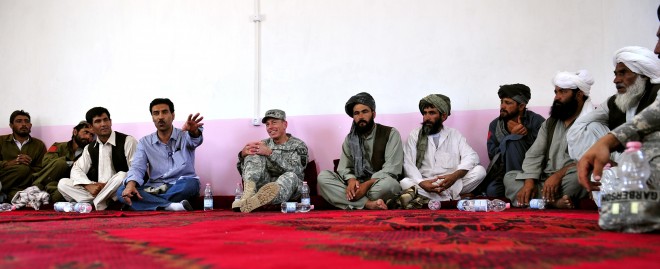

How Can a Democracy Solve Tough Problems?
Joe Klein
Thursday, 2 September 2010
TIME Magazine
But what if there were a machine, a magical contraption that could take the process of making tough decisions in a democracy, shake it up, dramatize it and make it both credible and conclusive? As it happens, the ancient Athenians had one. It was called the kleroterion, and it worked something like a bingo-ball selector. Each citizen — free males only, of course — had an identity token; several hundred were picked randomly every day and delegated to make major decisions for the polis.
Actually, the Chinese coastal district of Zeguo (pop. 120,000) has its very own kleroterion, which makes all its budget decisions. The technology has been updated: the kleroterion is a team led by Stanford professor James Fishkin. Each year, 175 people are scientifically selected to reflect the general population.
Tom Atlee Comments:
I'm not yet up to diving in re this fascinating TIME article on participatory budgeting based on Deliberative Polling methodology but some of you might want to. Interesting that they don't cover Participatory Budgeting, which is becoming widespread in South America, or the experiments using Citizens Juries for budgeting in Canada… It is, of course, amazing that less-wise forms of deliberative democracy — like Fishkin's Deliberative Polls and AmericaSpeaks' 21st Century Town Meetings — are preferred by power-holders over more potent forms like Citizens Juries, Citizens Assemblies, Consensus Conferences, etc., to say nothing of Wisdom Councils (which aren't strictly deliberative). On second thought, it is not surprising.. 🙂 But Fishkin and Lukensmeyer have the political savvy to clear the way for more advanced forms of wise democracy to emerge into public awareness and use. It's up to us to use that space.
Coheartedly,
Tom







